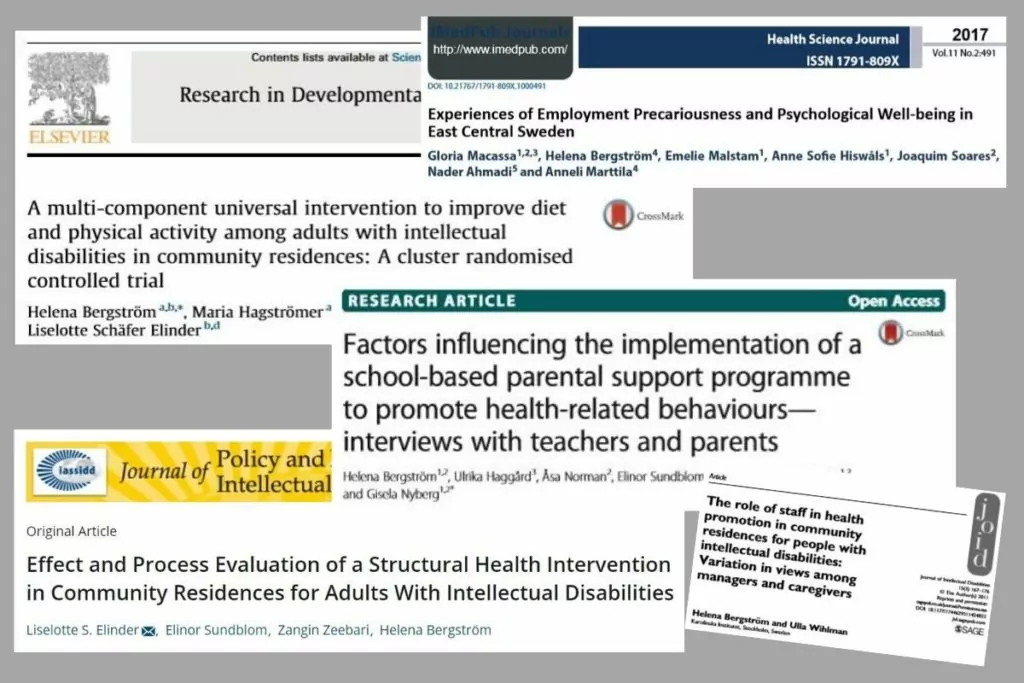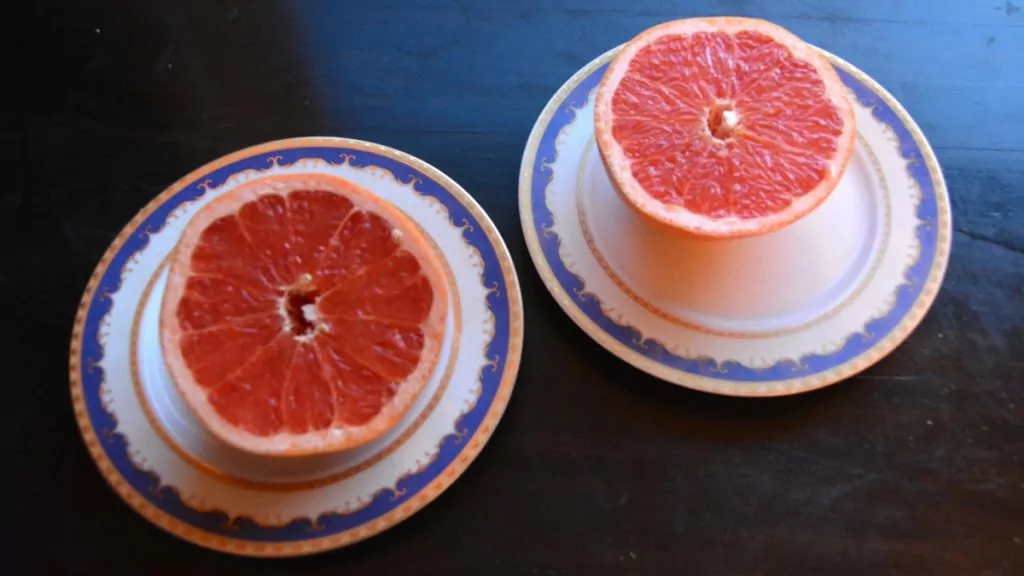What does research say about food and health? Who and what should we believe? Today I (Helena) continue my Wednesday theme on food and health from the perspective of a public health scientist.
Table of contents
Food and health research in the media - new findings all the time
Reading newspapers and magazines, or watching TV, it can easily feel like there is a constant stream of new information about food and health. One week coffee is healthy and the next week you should avoid coffee altogether. One magazine says you should eat lots of protein, and another says you should become a vegetarian. So, who to believe? And the Swedish National Food Agency, are they out of touch or what?

Much research on food and health
It is true that there is a lot of published research on food and health. Around the world, new research articles/studies on the subject are constantly emerging. Overall, there is a huge amount of research being produced in the world - so much so that it is sometimes seen as a problem.
In the academic world, publishing scientific studies is the key to a career - to do a PhD and then aspire to become an associate professor and professor. Status is not based on salary. Everyone wonders how many scientific articles/studies you have published.
Publishing in scientific journals is academic status and hard currency. And what does this mean? It means that everyone wants to publish as much as possible. According to some sources, there are around 30,000 scientific journals to publish in, and in total around 2 million scientific articles/studies are published per year.

Referring to "one study" often means very little.
From this perspective, one (1!) study means very little. It can be interesting if the study includes a large sample size, is conducted over a long period of time and uses rigorous scientific methods. Otherwise, "one study" carries very little weight. You've probably heard the media or a friend say "according to this study ...", but according to those of us who work in this field, it is a single study usually relatively insignificant, although each individual study can contribute as a piece of a larger puzzle.
What you do in order to catalogue all the research is to choose an open question that you want to answer, and then do a 'systematic review', i.e. a review of all existing research in the field. This usually requires a specialised university librarian, some researchers and several months of work.
Fortunately, you don't always have to do the work yourself! Sometimes another researcher has done just that and published the results. One such, which is about Actions to promote healthy eating habits and physical activityI did at Karolinska Institutet, on behalf of the Swedish Public Health Agency, a few years ago.

Many want to assert 'their cause'
When it comes to food and health, many people want to make their case. This may be for ideological or perhaps financial reasons. Companies selling food supplements and various miracle cures naturally want to refer to articles/studies that are in their favour.
And the thing is, it is usually possible to find a study that "proves" exactly what you think. But, then you have forgotten that there are around 2 million articles/studies published per year and that you really need to do a "review", i.e. a review of all research in the field.

But won't the authorities be fooled?
One can quite often read thoughts that the authorities may be "cheated" because they do not immediately listen to any individual research study that is highlighted in the media and change their advice. But the fact is that the authorities do it the hard way and compile research as I described earlier, or ask universities to compile research for them. It takes a lot of time, but it's more accurate.
I know many people working in government, universities or in the region, such as researchers, nutritionists or physiotherapists. All of them are highly educated, experienced and committed (but usually with limited pay and never any bonuses).
That anyone in the public world would try to "cheat" is in my world completely incomprehensible. A company that sells a drug may, for economic reasons, see a benefit in promoting certain research and suppressing others. Those who work in the service of society have no such motives at all.

So, when it comes to research on food and health, who should you believe?
If you've read this far, you might start to realise what I want to say. The people I personally trust most in this context are authorities, regions and universities - and rigorous scientific reviews.
Of course, new evidence may emerge, and institutions may not move as fast as the media, but if the balance of research shows that the recommendations should be changed - they will be changed.
Here are a few places where you can find up-to-date advice and tips on food and health.
- The National Food Agency: Dietary advice - find your way
- Sound courses: Science-based lifestyle advice

What are your thoughts on food and health research?
What are your thoughts on food and health research? Please tell us! Or maybe you have some questions or concerns? Let's hear it!













ridge says:
"Food and health is an interesting topic. I believe that a good diet makes you feel better. But it is so crazy that it is cheaper to buy a bag of crisps than a bag of fruit... crazy. Maybe the school should invest in more information to primary school students / high school students about how important it is to eat well, not to opt out of the school lunch and choose sweets in some form instead, yes I know what my kid who is in 8th grade eats 😉 even though I try to get her to choose the lunch.
02 December 2020 - 7:50
Helena says:
We now know that food has a major impact on our health. I agree with you that it is important that children and young people get a good start and good habits to take with them in life. But of course there are many challenges! As you write, it is tricky when chips and sweets are cheap, for example. I think that young people may also influence each other? You do a good job trying to influence, and then you also have the opportunity to offer good food at home.
02 December 2020 - 9:30
4000mil says:
Very interesting to read from your professional perspective.
That "the accumulated science" seems so incredibly difficult to get people to understand. In all contexts, not just diet and health. I have tried many times to explain but rarely succeed. 🙂
02 December 2020 - 8:59
Helena says:
This is certainly the case, and of course it applies to many other areas of research as well. I fully agree that it is a challenge to explain, and I don't think the media makes it easier.
02 December 2020 - 9:31
Ditte says:
Very interesting and thought-provoking!
I recognise most of it and am fairly well versed in the research and have been involved in some studies regarding different diets and how they in turn affect the body. Very interesting and I still read much of the research that exists. Have a very good friend, since my GIH time, who is a professor at KI in nutritional physiology at KI so it is very interesting to talk to her about the subject and learn more about what is going on.
It is a very important issue in general and not least for parents today to advocate good eating habits and for them to have and receive knowledge. And not least about the importance of combining "good nutrition" with physical activity.
02 December 2020 - 9:09
Helena says:
Yes, I remember you telling me about your friend earlier. I understand that you are involved, for several reasons! And of course it's important that children who grow up have the opportunity for a good start!
02 December 2020 - 19:41
bmlarstravellingblog says:
What an interesting and well-written post!
Of course, a varied and balanced diet is incredibly important for health and well-being. However, I probably take most commercially conducted studies with a large pinch of salt. Especially since I studied 20 credits of statistics and research methodology in the mid-90s. Then I realised that you can get exactly the results you want if you modify your sample and other parameters.
I fully agree that authorities, universities and the like are much more credible.
Secondly, the eating (and living) habits of many children and young people are a major problem.
02 December 2020 - 10:35
Helena says:
Yes, you also have a point about who is behind a study. Who is funding it plays a role. You can choose to ask questions in different ways, etc. And of course you can choose to highlight different things through statistics, depending on the analyses you make, etc. And yes, of course, our eating habits are an important health issue today, not least when it comes to children and young people.
02 December 2020 - 19:44
Lena+in+Wales+and+Spain says:
Interesting!
I don't think that authorities may mean to deceive, but sometimes there can be a strange slant to the information.
I think it's important to have the right amount of exercise and healthy thinking about food, again the right amount of this and that. Old thoughts.
Take care!
02 December 2020 - 11:06
Helena says:
Maybe the authorities have not always been great at communication, you may be right! My experience is that they have improved, but maybe you have a different opinion?
02 December 2020 - 19:46
Only British says:
This is exactly the case with my field of environmental reporting as well. Many people do not know what to believe and wonder which is the worst thing to eat and the worst way to transport themselves. I also often perceive news journalists as quite ignorant about science.
When it comes to food and health, I always find one thing missing from the general reporting and that is that food affects our hormones. If people read more about it, maybe we would stop pointing fingers at each other's different choices of what is healthy. Sure, we all have the same digestive system but we can react differently to different foods depending on our hormones. The only ones that address this are books on menopause but they are aimed at the already saved (who would have needed that information long before!) and do not attract anyone else.
02 December 2020 - 12:00
Helena says:
Interesting that you experience the same thing in your field! My experience with the media is also that "clicks" are so important that it sometimes overshadows being clear. Not "pointing the finger" is extremely important. We people are different in every way and we all have different challenges. Sooo important to have respect and understanding for our differences and our different conditions.
02 December 2020 - 19:50
Nils-Åke+Hansson says:
Interesting to read now that I came home from the medical centre and they have told me that I have Di 2. I want to take pills but I do not want medication, I want moderate exercise and a healthy and good diet. I think I have it, but it does not seem to be enough.
But it was interesting to read what you wrote.
02 December 2020 - 13:20
Helena says:
I'm sorry to hear that you've been diagnosed, but maybe it's also good to know so you can help your body in the best possible way! Today you can usually live well with diabetes if you know about it and can take care of your body. Medication can help, in combination with good food and exercise. Hope you find a good balance!
02 December 2020 - 19:52
BP says:
What an interesting post. As I live in a completely different "world" there was a lot of new information that I had no idea about. The research world is completely foreign to me. So thank you for this sneak peek;-)
02 December 2020 - 15:45
Helena says:
See what you mean, all worlds are "their own" in a way. Peter often reminds me that "my world" is a bit "different" ... 😉.
02 December 2020 - 19:53
Lena - good for the soul says:
An interesting perspective on research. The whole "research says" thing often says nothing. And the fact that you can prove almost anything you want with research results if you want to is probably not something everyone thinks about.
Hug Lena
11 December 2020 - 18:10